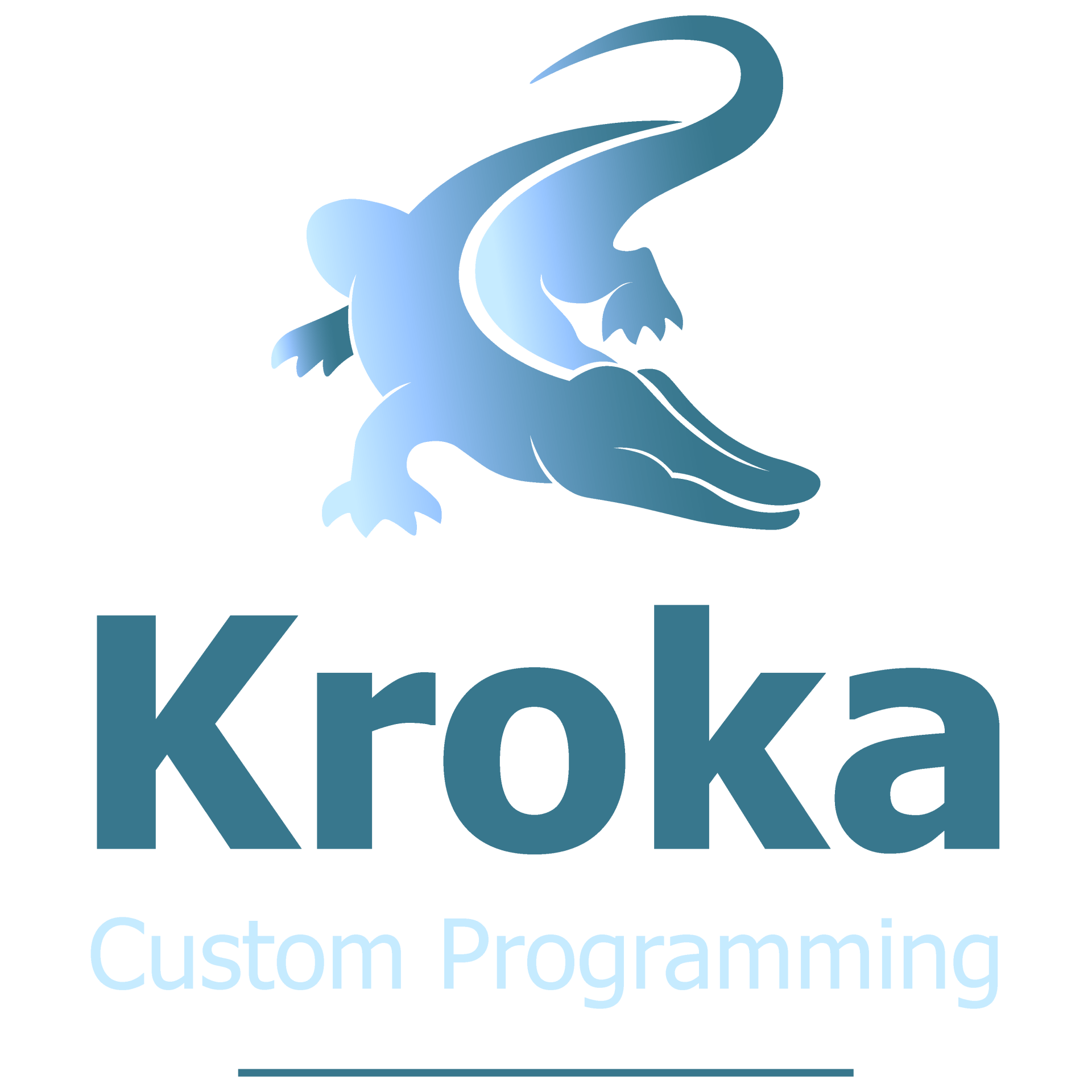Automated Inventory Management
& Ordering Applications
Automated Inventory Management System keeps track of inventory, stock, purchase orders, suppliers, customers, products, and services. It also aids with restocking and pricing decisions.
You can run reports, perform cost analysis, create purchase orders based on predetermined criteria, and automatically set prices based on a predefined algorithm that takes into consideration all the costs associated with a product. These complex calculations can be done in an instant by a custom, algorithm-based application.
Contact Us For Inventory Management Database Development
Inventory & Ordering Contact Form
What Is An Automated Inventory Management System?
As you know, tracking your inventory is a very important part of your business. Keeping accurate stock numbers prevents overselling and upset customers, it also prevents loss of sales, when you think you're out of a product, but it's been sitting on the shelf all along, just wasn't tracked correctly.
Being able to quickly find any product is key to speedy order filling and happy customers and an
automated custom inventory management software will help you will all this and much more.

Why Get A Custom Inventory Management Software & Order Management Application?
Manually tracking inventory and stock information can be a nightmare, even with a relatively small number of products. Below are some of the examples of what a properly built inventory management database can do for you.
List of Services
-
StockList Item 1
Keep your stock up to date. Once the initial inventory count is completed and entered into the application, the rest is done by the automated inventory management system.
When you complete an order, the quantities ordered will be automatically subtracted from the current stock. If you get a return, once the package comes in and is inspected, you will be able to select those you deem good for resale and the products will be automatically added back to stock.
You will get real time reporting on stock, by category, by supplier, items, etc. You will be able to see products low on stock based on preset criteria, set alerts for low stock and anything else you might want to keep an eye on.
Restocking can be semi or fully automated by analyzing the data on previous sales. Sample algorithms are described below:
Let's say, you have a product that sells once a month (the application will calculate quantity sold within the period you set) and you have 3 left.
You have another product, of which you sell 4 a month and you have 15 left.
Let’s say, you usually replenish stock every 6 months, and you'd like to keep enough extra stock to last for a month by the next purchase time.
All this can be configured in the inventory management database design application and when the time comes to replenish stock, the application will make a suggestion to buy 4 of the first item (you have 3 left, in 6 months you expect to sell 6, you need 1 extra to last the extra month, so, 7 minus 3, and 4 is the answer) and 13 of the 2nd product (you have 15 left, in 6 months you expect to sell 24, you need another 4 to last the extra month, so, 28 minus 15, and 13 is the answer).
Of course, these will be estimates, since you can't accurately predict future sales, but this information will enable you to make better restocking decisions. At the next restock, the number of items sold will be automatically recalculated and the suggested restock quantity will be adjusted based on sales in the previous period.
This should help you avoid overstock and make sure you stock enough of the popular items.
-
Automated price settingList Item 2
You can also have the custom inventory management software help with setting product prices. You will be able to track all costs associated with a product and this information will be used to calculate a suggested price almost instantly.
So, let's say, you make custom dog leashes. A leash consists of material, carabin, and thread.
You will have a separate suppliers form with each supplier's products, prices, and shipping costs.
You will then be able to select the supplier, material, carabin and thread used to make this leash, and supplier shipping costs will be calculated automatically.
You also will be able to enter the time you spend making each leash and set an hourly rate for yourself.
The program will then calculate the cost and time spent, will add an amount (or a %) that you set and will suggest the product price. This will be done in batches and it’s much easier on your end than it sounds.
As you can imagine, making all these calculations manually, for every product, is impossible but the automated inventory management system will instantly make these calculations and provide you with a suggested sales price.
You will then be able to set your own price or keep the suggested one, but you will have all necessary information to make this decision.
Of course, each business has their own price setting policies but that's the beauty of a custom application: it will be designed specifically for your business and will be able to accommodate any of your scenarios.
-
Seamless inventory management
Track how well a product is selling, costs associated with a product, all information about the product, category, specifications (you decide which fields you need to track), description (can be used for automatic uploads to your website and/or marketplaces, such as, Amazon and eBay), size, color, flavor, scent, etc.
With an MS Access inventory management app, you can track suppliers, products they offer, and all costs associated with ordering from them, such as, shipping costs, minimum order amount/quantity, products they carry.
If they provide product lists, our MS Access automated inventory database will allow you to load them automatically.
-
Automated order-filling process
When an order comes in, you will be able to pull a work order where your employees will see the items ordered, quantity and the items' warehouse locations (isle, shelf, etc.).
Shipping labels will also be created automatically, as well as invoices (if you need them). An order confirmation email and a shipping email will go out automatically.
If you get orders from a website, they can be automatically transferred to the application. A two-way transfer can be setup, so that current stock is available on your website..
-
Barcoding and tagging functionality
You can have a barcode reader connected to your custom inventory management software stock application.
Barcoding minimizes errors and greatly speeds up the process of entering inventory, tagging products, processing orders, and getting product information..
-
Reporting tools
You will be able to run all kinds of analyses, such as, low stock, best and worst selling products, revenue by period, profit by period, sales trends by product, product categories, size and style, flavor, just to name a few.
With properly structured, clean data (our custom inventory management software make sure of this), all types of reports can be run and useful insights can be gathered.
Why get a custom Inventory & Order Management application?
You are probably wondering why you should get a custom small business Inventory Management software, after all, there are so many on the market, there’s no waiting period, and it might (in some cases) be cheaper than getting a custom one built. Buying an application that’s already available can be cheaper because they were made for mass market, and developers make their money by the number of subscriptions. But the fact that they were developed for mass market is the biggest downside to these applications.
When developing an application intended for use by many types of businesses, it’s impossible to account for every scenario that every business will have. So, they pick the most common features, add as many customization options as they can, and hope that their clients will be able to improvise enough to make it work.
In our experience, that rarely happens. While these applications have a lot of useful features and can accommodate a lot of the businesses’ needs, there will always be scenarios where improvising isn’t possible, and you will be faced with a choice: use some other application for these tasks or skip them altogether.
This defeats the purpose of getting an application: you’re still left with Excel files and data in multiple places, or you’re missing out on functionality that can make a difference for your business.
When an application is developed specifically for your business, it is tailored to your operations. We learn your workflows and automate them, we are able to build any custom processes and reports, we are able to add any other aspects of your business to this application.
Let’s say that you also need a scheduling module, or a CRM module, or you want accounting to be done in that application as well, or maybe you also want POS (point of sale) capabilities… there’s no limit to how many different business aspects an application can handle and that’s the beauty of a custom-built application: total flexibility.
Additionally, having all your operations done in a single application allows you to have all your data in one place, keeps the data clean, and allows for many useful analyses and reports.
All applications are developed from zero and are developed specifically for your business.


